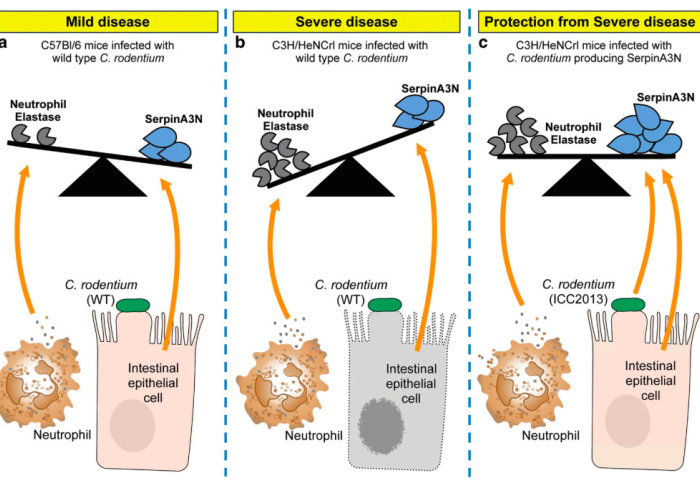Faecal neutrophil elastase-antiprotease and its activity on colitis severity

New collaborative research has identified a biomarker, and potential treatment target, for colitis.
Research conducted by former group member Dr Scott Lovell, in collaboration the Departments of Life Sciences; Gastroenterology and Hepatology; Metabolism, Digestion and Reproduction; and Chester Beatty Laboratories, has helped identify a link between faecal neutrophil elastase-antiprotease and colitis severity. This work has been recently published in Mucosal Immunology.
During C. rodentium infection, intestinal epithelial cells are known to secrete a serine protease inhibitor. Mice suffering from severe infection produce insufficient quantities of this serine protease inhibitor and this activity contributes to colitis severity during infection. The research suggested that neutrophil elastase activity could be a useful faecal biomarker for assessing disease severity and a potential therapeutic target to alleviate both infectious and chronic inflammatory colitis.
Well done and thank you to all those involved in this research! Dr Lovell was supported by EPSRC funding for this study.
Article supporters
Article text (excluding photos or graphics) © Imperial College London.
Photos and graphics subject to third party copyright used with permission or © Imperial College London.
Reporter
Dr Ravi Singh
Department of Chemistry
Edward Bartlett
Department of Chemistry